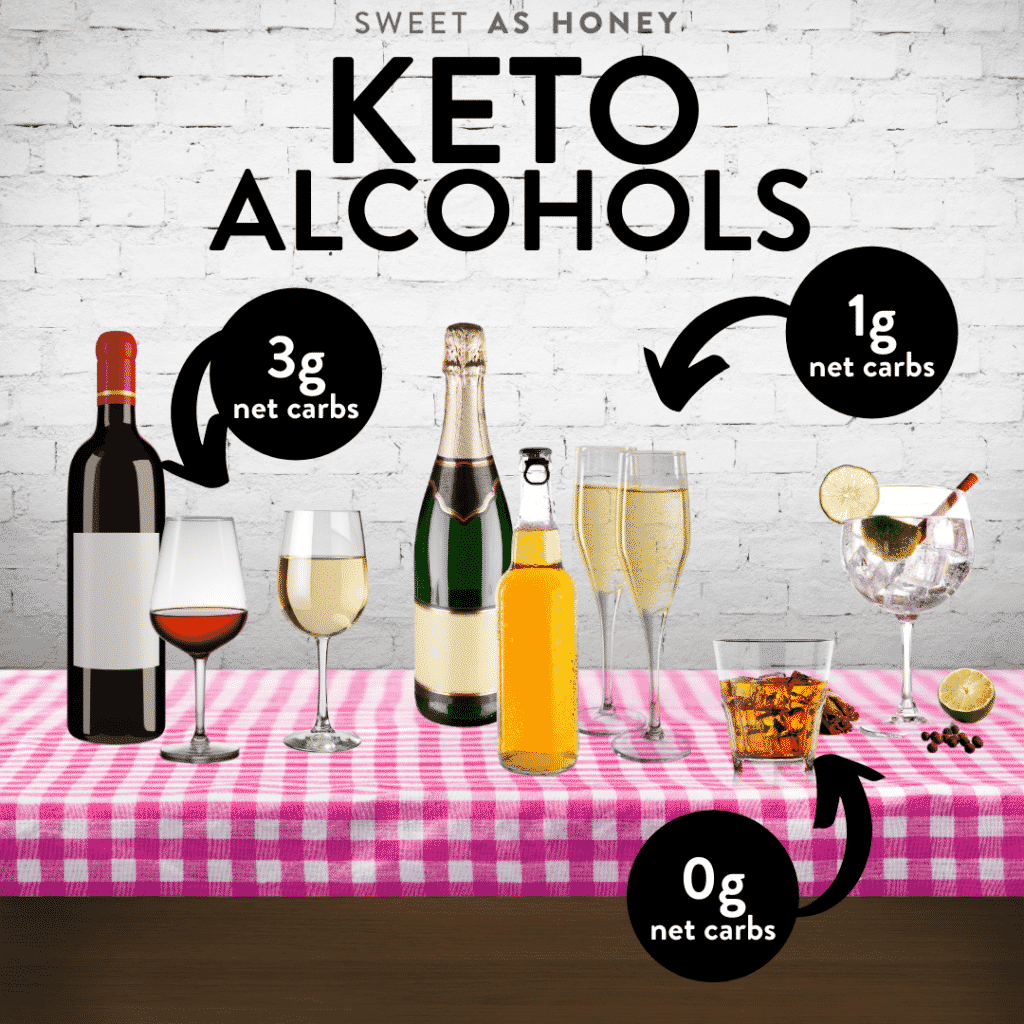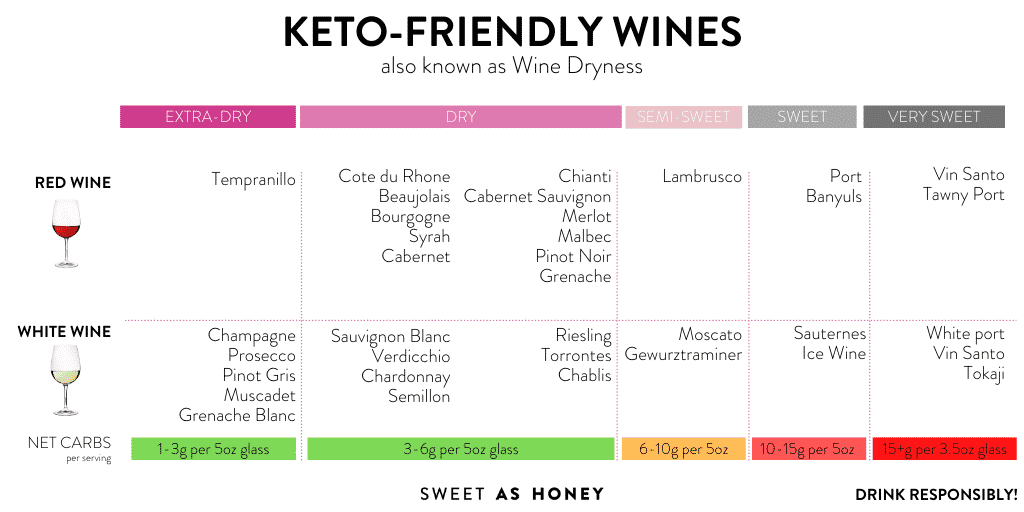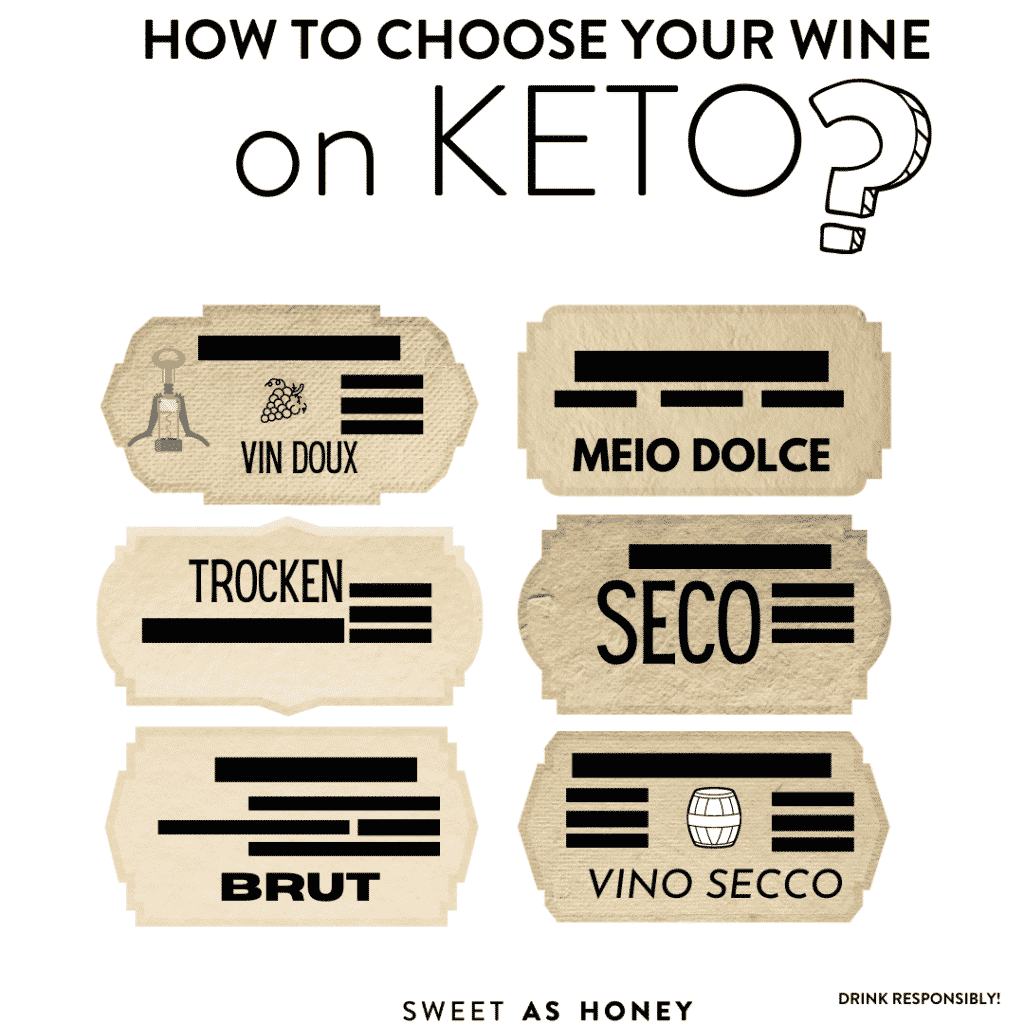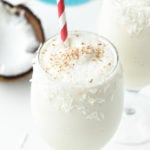Can I Drink Alcohol on Keto: the Best Keto-friendly Drinks
This recipe may contain Amazon or other affiliate links. As an Amazon Associate I earn from qualifying purchases.
Can I drink alcohol on a Keto diet? Will a single glass of liquor take me out of ketosis? What keto-friendly alcohol can I order when I go out? Doesn’t the body turn alcohol into sugar?
Let me answer all these questions and more!
Disclaimer: Consumption of alcoholic drinks negatively affects your ability to drive a car or operate machinery and may cause health and behavioral problems if consumed in excess. On a keto diet, you might need significantly less alcohol to get severely intoxicated. Women should not drink alcoholic beverages during pregnancy. Alcool leads to addiction, even when consumed with moderation. If you need help, call your local Addiction Center (In the US: (866) 399-3979, in Canada: 1-800-565-8603, in the UK: 0300-123-1110, in Australia: 1300-85-85-84, in NZ: 0800 787 797).
I’ll cover with you how alcohol affects the body to understand better why some drinks are keto-friendly, and some are not. I’ll also cover all the most popular alcoholic drinks, from the common ones like beer and wine to liquors and spirits, but also the most popular cocktails. And I’ll try to offer alternatives for the drinks that are definitely not keto-friendly!
Drinking alcohol is mostly a social celebration. Whether it’s for a birthday, an anniversary, Christmas, New Year’s Eve, or Thanksgiving, or just because you are happy to meet some friends, alcohol has always been a way to celebrate.
Let me tell you this first. You can drink alcohol on a keto diet! Keto and alcohol are compatible. There are many drinks that are naturally keto-friendly and many others that just need some adjustments to become keto-friendly. Whether you are new to the keto diet or you’re a pro, read on to get the most important facts about the keto diet and alcohol.
If you’re in a rush, here are the most keto-friendly common drinks:
| Alcohol | Net Carbs | Serving Size |
|---|---|---|
| Tequila | 0 gram | 1.5 oz |
| Rum | 0 gram | 1.5 oz |
| Whiskey | 0 gram | 1.5 oz |
| Vodka | 0 gram | 1.5 oz |
| Gin | 0 gram | 1.5 oz |
| Bourbon | 0 gram | 1.5 oz |
| Cognac | 0 gram | 1.5 oz |
| Champagne | 1-2 grams | 4 oz |
| Dry Wine | 1-6 grams | 5 oz |
| Light Beer | 3-8 grams | 12 oz |

Continue reading for the complete list!
What is alcohol?
Let’s start from the beginning. Understanding what alcohol is and how it affects the body is quite important to understanding which alcoholic drinks are keto-friendly.
Alcohol is a chemical compound called ethanol that is present in all alcoholic beverages. It is psychoactive, so it changes the way you feel. That’s why you are a bit more euphoric, sociable, and generally feeling happier after having a drink.
Because it is a drug, it is essential to drink responsibly and control your alcohol consumption. Never drink and drive! And be aware of the long-term physical and mental effects of habitual drinking.
Warning! People on a keto diet tend to get intoxicated from much smaller quantities of alcohol.
How do alcoholic drinks get their alcohol?
Alcohol is made from sugar! This process called fermentation turns the sugar present in fruit, grains, or vegetables into alcohol.
For example, wine is made from grapes. The sugar in grapes turns into alcohol. Yeast performs this fermentation using an anaerobic process, meaning in the absence of oxygen. Fermentation is what yeasts use to create their energy.
The most important factor for the keto-friendliness of any drink is the quantity of residual sugar. Residual sugar is what is left after the fermentation process.
Does alcohol turn into sugar in the body?
This is a common misconception. No, alcohol is not broken down into sugar. It is actually the opposite. The consumption of alcohol tends to decrease the blood glucose level. The number of calories in alcoholic drinks is mostly coming from alcohol.
However, many alcoholic drinks also contain carbohydrates. Carbs in drinks are much faster to enter your blood than the equivalent calories in food like pasta or bread. As a result, alcoholic drinks that do contain sugar can take you out of ketosis extremely fast!
Alcohol can also increase your hunger. This can lead to eating more than necessary and is another risk for your ketosis.
Another thing to be aware of is that your liver already works a lot when you are on a keto diet. It produces Ketones to keep you functioning. When you drink alcohol, it has to work overtime to remove that ethanol from the bloodstream. It can result in either longer intoxication (if production of ketones is prioritized) or increased fat storage (if alcohol elimination is prioritized).
Besides the caloric aspect of alcohol, it’s important to note that it brings absolutely zero nutrients (protein, vitamins, or minerals).
Can I drink alcohol on keto?
Yes, you can drink alcohol on keto. In fact, there are many keto-friendly alcoholic drinks available. Just remember that like all keto-related questions, it is always the quantity that matters!
If one glass of wine is keto-friendly, it doesn’t mean that you would still be in ketosis after 4 glasses! And you are more likely to fall for sugary food when intoxicated.
By now, you’ve gathered that not all alcohols are keto-friendly, so let’s cover all the common drinks, whether or not they are keto-friendly, and if an alternative is possible.
What alcoholic drinks are keto-friendly?
There are several alcohols that are fine on a keto diet. The main ones are:
- Wine: Dry Red wines (Merlot, Cabernet Sauvignon, etc.) Dry White Wines (Muscadet, Sauvignon Blanc, Chardonnay, Pinot Gris), Champagne, Prosecco, Dry Sparkling Wine, Dry Rose.
- Light Beer: Be careful here! Non-alcoholic beer is NOT the same as light (low-sugar) beer! Only light beer is keto-friendly.
- Hard liquor: Bourbon, Gin, Rum, Tequila, Vodka, Whiskey are all keto-friendly. If you like them in cocktails, read my cocktail section below!
- Dry cocktails: Dry Martini, Dry Manhattan, etc.
What alcoholic drinks are NOT keto-friendly?
Find below the list of alcoholic drinks to avoid on a keto diet!
- Most cocktails: often made with sugar or sugar-loaded soda or juices.
- Wine Coolers / Alcopops / Ready-to-drinks / Mixed drinks: most of them are made with sugar-loaded soda.
- Sweet Wine: Sauternes, Port, Sherry, Muscat, Riesling, Asti, etc.
- Cider: most ciders have quite a lot of sugar.
Best Alcohols for Keto
Now let’s have a look in much more detail on what are the best keto-friendly alcohols on a keto diet or on a low-carb diet.
Can I drink wine on a keto diet?
Like all other alcoholic drinks, wine is manufactured from sugar-loaded fruits. In fact, the more sugar in the fruit, the stronger the drink will be!
Some wines have a lot of residual sugar left after fermentation, and some wines have almost none.
On a keto diet, you want wines that have close to no residual sugar. Luckily, there’s a common scale of how much sugar is left in the wine. It’s called the Wine Dryness Scale.
Tip: if you are dining in a restaurant and your waiter doesn’t know if a wine is keto-friendly, ask for a very dry wine!
| Wine | Type | Dryness | Carbs / Serving | Serving Size | Keto-friendly |
|---|---|---|---|---|---|
| Tempranillo | Red Wine | Dry | 2.3g | 5oz | Yes - up to 3 |
| Pinot Noir | Red Wine | Dry | 3.4g | 5oz | Yes - up to 2 |
| Merlot | Red Wine | Dry | 3.7g | 5oz | Yes - up to 2 |
| Cabernet Sauvignon | Red Wine | Dry | 3.8g | 5oz | Yes - up to 2 |
| Syrah | Red Wine | Dry | 3.8g | 5oz | Yes - up to 2 |
| Chianti | Red Wine | Dry | 3.9g | 5oz | Yes - up to 2 |
| Cote du Rhone | Red Wine | Dry | 4g | 5oz | Yes - one |
| Beaujolais | Red Wine | Dry | 4g | 5oz | Yes - one |
| Bourgogne (Burgundy) | Red Wine | Dry | 4g | 5oz | Yes - one |
| Cabernet | Red Wine | Dry | 4g | 5oz | Yes - one |
| Malbec | Red Wine | Dry | 4g | 5oz | Yes - one |
| Grenache | Red Wine | Dry | 4g | 5oz | Yes - one |
| Lambrusco | Red Wine | Semi-Sweet | 9g | 5oz | No |
| Port | Red Wine | Sweet | 15g | 3.5oz | No |
| Banyuls | Red Wine | Sweet | 16g | 5oz | No |
| Tawny Port | Red Wine | Very Sweet | 20g | 2oz | No |
| Vin Santo | Red Wine | Very Sweet | 30g | 3.5oz | No |
| Champagne | White Wine | Extra-dry | 2g | 4oz | Yes - up to 3 |
| Prosecco | White Wine | Extra-dry | 2g | 5oz | Yes - up to 3 |
| Muscadet | White Wine | Extra-dry | 2g | 5oz | Yes - up to 3 |
| Grenache Blanc | White Wine | Extra-dry | 2.5g | 5oz | Yes - up to 3 |
| Pinot Gris (Pinot Grigio) | White Wine | Extra-dry | 2.6g | 5oz | Yes - up to 3 |
| Sauvignon Blanc | White Wine | Dry | 3g | 5oz | Yes - up to 2 |
| Verdicchio | White Wine | Dry | 3.2g | 5oz | Yes - up to 2 |
| Chardonnay | White Wine | Dry | 3.2g | 5oz | Yes - up to 2 |
| Semillon | White Wine | Dry | 4.1 | 5oz | Yes - one |
| Torrontes | White Wine | Dry | 4.6g | 5oz | Yes - one |
| Chablis | White Wine | Dry | 5g | 5oz | Yes - one |
| Riesling | White Wine | Dry | 5.5g | 5oz | Yes - one |
| Gewurztraminer | White Wine | Semi-Sweet | 7.8g | 5oz | Yes - one |
| Muscato | White Wine | Semi-Sweet | 7.9g | 5oz | Yes - one |
| Sauternes | White Wine | Sweet | 14g | 5oz | No |
| White port | White Wine | Sweet | 16g | 5oz | No |
| Tokaji | White Wine | Very Sweet | 20g | 5oz | No |
| Vin Santo White | White Wine | Very Sweet | 28g | 5oz | No |
| Ice Wine (Eiswein) | White Wine | Very Sweet | 40g | 5oz | No |

Can I drink Champagne on Keto?
Champagne is one of these wines forever associated with celebrations. Luckily, Champagne is almost always a very dry wine.
In fact, you can tell how dry it is by its name. Dry translates to “Sec” in French, but most Champagne bottles would say something different: Brut.
Brut, is actually a level of dryness, even less sweet than dry. It is specific to Champagne.
What are the other words for Dry?
Since you are going to be looking for a dry wine, it is useful to know how other languages refer to dry wines.
- Sec: in French. It translates to dry.
- Brut: in French and mostly for Champagne. It means very dry but translates to Gross, Crude.
- Secco: in Italian. It translates to dry.
- Trocken: in German.
- Seco: in Spanish and Portuguese.
It is also useful to know what labels are NOT keto-friendly. If you see the following on a bottle, avoid it!
- Medium, Semi-Sweet, Sweet, Dessert Wine: in English
- Moelleux, Demi-Doux, Doux, Vin de Dessert, Vin Liquoreux: in French
- Lieblich, Süß, Süss: in German
- Amabile, Dolce: in Italian
- Meio Doce, Doce: in Portuguese
- Semidulce, Dulce: in Spanish

Can I drink Beer on a keto diet?
Unless it is a light beer, no, you can’t have regular beer on a keto diet!
A typical beer has about 20 grams of net carbs per 12 ounces or 350 ml serving. This is because beer, unlike spirit, has a quicker fermentation process, and therefore more sugar remains in the bottle.
If you want to drink a beer on your keto journey, make sure to pick a light beer, also known as a low-calorie beer.
What’s the difference between light carb beer and light alcohol beer?
Light beer is, unfortunately, an unregulated term. Depending on what the beer manufacturer wants to sell, they might use it to mean different things.
Light Beer can sometimes refer to low-carbohydrate or low-sugar beer, which is what you want on a keto diet.
Light Beer also refers to low-alcohol beer. Although there are a number of beers that are both low in alcohol and in sugar, it is not always the case. Many low-alcohol beers contain a high quantity of carbs.
Make sure to read the full sticker! Some beers advertise 0 Sugar or sugar-free, but that does not mean 0 carbs! Carbs can be present as starch, which is technically not sugar but still gets digested and transformed into glucose, kicking you out of ketosis!
To illustrate this, just have a look at the two low-alcohol beers below.
- Budweiser Zero has 11.2 grams of carbs per 330ml can but 0% alcohol. Not Keto Friendly! However, they market it with 0 sugar which is technically correct, but don’t fall for it!
- Budweiser Select 55 has only 2 grams of carb per 12 fl. oz can, yet it has 2.4% alcohol. Keto-friendly!
So when choosing a low-carb beer, don’t only look at the alcohol content. It doesn’t tell the whole story.
What are the best beers to have on a keto diet?
The best beers to choose on a keto diet and to stay in ketosis are the beers that are low in sugar and carbs.
Here is a selection of common beer and whether or not they are keto-friendly:
| Beer | Carbs per Serving | Serving Size | Alcohol | Keto Friendly |
|---|---|---|---|---|
| Lagunitas Hop | 0 g | 355ml / 12 fl. oz. | 0% | Yes |
| Bridge PrimeTime | 1.5 g | 355ml / 12 fl. oz. | 5% | Yes - up to 3 cans |
| Budweiser Select 55 | 2 g | 355ml / 12 fl. oz. | 2.4% | Yes - up to 3 cans |
| Miller 64 | 2.4 g | 355ml / 12 fl. oz. | 2.8% | Yes - up to 3 cans |
| Corona Premier | 2.6 g | 355ml / 12 fl. oz. | 4% | Yes - up to 2 cans |
| Lagunitas DayTime IPA | 3 g | 355ml / 12 fl. oz. | 4% | Yes - up to 2 cans |
| Budweiser Select | 3.1 g | 355ml / 12 fl. oz. | 4.3% | Yes - up to 2 cans |
| Miller lite | 3.2 g | 355ml / 12 fl. oz. | 4.2% | Yes - up to 2 cans |
| Milwaukee Best Light | 3.5 g | 355ml / 12 fl. oz. | 4.8% | Yes - up to 2 cans |
| Southbound Light Lager | 3.5 g | 355ml / 12 fl. oz. | 4.8% | Yes - up to 2 cans |
| Deschutes Wowza | 4 g | 355ml / 12 fl. oz. | 4% | Yes - up to 2 cans |
| Deschutes Da Shootz | 4.2 g | 355ml / 12 fl. oz. | 4% | Yes - up to 2 cans |
| Coors light | 5 g | 355ml / 12 fl. oz. | 4.2% | Yes - 1 can |
| Sufferfest Repeat | 5 g | 355ml / 12 fl. oz. | 3.5% | Yes - 1 can |
| Bud Light Platinum | 5.1g | 355ml / 12 fl. oz. | 6% | Yes - 1 can |
| Heineken Light | 6.3 g | 330ml / 11.2 fl. oz. | 2.5% | Yes - 1 can |
| Bud Light | 6.6 g | 355ml / 12 fl. oz. | 4.2% | Yes - 1 can |
| MIlwaukee Best Ice | 7.3 g | 355ml / 12 fl. oz. | 5.9% | Yes - 1 can |
| Tecate Light | 7.9 g | 355ml / 12 fl. oz. | 3.9% | Barely - 1 bottle |
| Greens IPA | 8.2 g | 355ml / 12 fl. oz. | 5% | Barely - 1 bottle |
| Greens Dubbel Ale | 8.5 g | 355ml / 12 fl. oz. | 7% | Barely - 1 bottle |
| Amstel Light | 8.6 g | 330ml / 11.2 fl. oz. | 2.5% | Barely - 1 bottle |
| Greens Discovery | 9.9 g | 355ml / 12 fl. oz. | 6% | No |
| Budweiser | 10.6 g | 355ml / 12 fl. oz. | 5% | No |
| Heineken Lager | 11 g | 330ml / 11.2 fl. oz. | 5% | No |
| Budweiser Zero | 11.5 g | 355ml / 12 fl. oz. | 0% | No |
| Sol | 11.5 g | 330ml / 11.2 fl. oz. | 4.5% | No |
| Corona Extra | 13 g | 355ml / 12 fl. oz. | 4.6% | No |
| Deschutes IPA | 13 g | 355ml / 12 fl. oz. | 6.4% | No |
| Lagunitas PA | 13 g | 355ml / 12 fl. oz. | 6.2% | No |
| Tecate Original | 13 g | 355ml / 12 fl. oz. | 4.5% | No |
| Heineken 0.0 | 15.8 g | 330ml / 11.2 fl. oz. | 0% | No |
Can I drink spirits on keto?
Can I drink whiskey on keto? Does tequila have carbs? Can I have vodka on keto? I hear these questions ALL the time.
Yes, you can. As long as your spirits are not mixed with other sugar-loaded ingredients like fruit juice, syrups, sodas, or energy drinks. It’s that simple.
Manufacturing spirits requires the use of carb-loaded ingredients like potatoes (vodka), grain (vodka, whiskey), agave (tequila), or sugar cane (rum, cachaca).
But is liquor keto after this process? How can vodka be keto when it’s made from a very not keto vegetable?
Yes! Because all the carbs in these spirits turn into alcohol during the distillation process and they end up with no carbs left at the end.
Let’s have a look at how many carbs you would find in spirits.
| Spirit | Serving Size | Net Carbs | Keto-friendly |
|---|---|---|---|
| Rum | 1.7oz (50ml) | 0g | Yes |
| Tequila | 1.7oz (50ml) | 0g | Yes |
| Gin | 1.7oz (50ml) | 0g | Yes |
| Vodka | 1.7oz (50ml) | 0g | Yes |
| Whiskey | 1.7oz (50ml) | 0.1g | Yes |
| Bourbon | 1.7oz (50ml) | 0g | Yes |
| Cachaca | 1.7oz (50ml) | 0g | Yes |
| Schnapps | 1.7oz (50ml) | 8.8g | No |
| Brandy | 1.7oz (50ml) | 0g | Yes |
| Cognac | 1.7oz (50ml) | 0g | Yes |
| Sake | 6oz (180ml) | 9g | No |
| Shōchū | 3oz (90ml) | 4g | Yes - one serving |
| Absinthe | 1 oz (30ml) | 0g | No - Read note below |
| Mezcal | 1.7oz (50ml) | 0g | Yes |
| Pastis | 1 oz (30ml) | 0g | Yes |
| Ouzo | 1.7oz (50ml) | 16g | No |
| Raki | 1.7oz (50ml) | 11g | No |
Note: Absinthe is traditionally taken on a sugar block because it is so high in alcohol that it’s impossible to drink otherwise. Safe to say that the block of sugar is not keto-friendly and that, therefore, it is not advised to take Absinthe on keto!
Can I drink cocktails on keto?
There are millions of cocktail recipes. The vast majority of recipes are not keto-friendly as they contain either pure sugar, sugar-loaded juice, syrups, or soda.
There is a handful of them that are keto-friendly without having to adjust the recipe – see table below.
| Cocktail | Serving Size | Carbs per Serving | Keto friendly |
|---|---|---|---|
| Dry Martini | 7.5oz | 2.5g | Yes |
| Manhattan | 7.5oz | 3.2g | Yes |
| Bloody Mary | 7.5oz | 8.8g | Barely (make it a tad smaller) |
The solution to make these cocktails keto-friendly is to either:
- Replace the high carb soda with diet soda
- Replace fruit juice with water and zero-carb flavored drops
- Replace syrups with keto versions
If you are after low-carb versions of your favorite cocktail, check out my recipes below.
Can I drink liqueur on keto?
Liqueurs are, by definition, alcoholic beverages that are bottled with added sugar and flavors. As a result, they are not keto-friendly by design!
If you are not sure if what you bought is a spirit or a liqueur, the list below has the most common liqueurs that are all NOT keto-friendly.
- Kahlua
- Baileys Irish Cream
- Creme de Banane, Cacao, Cassis, Cerise, etc.
- Curacao
- Cointreau
- Grand Marnier
- Limoncello
- Midori
- Manzana Verde
- Triple Sec
- Anisette
- Chartreuse
- Jagermeister
- Amaretto
- Frangerlico
- Southern Comfort
- Campari
Is cider keto?
Most ciders are not at all keto-friendly. It’s actually one of the very worst drinks to have on a ketogenic diet.
A typical cider would have about 20 to 30 grams of carbs per serving. This is because the fermentation process is often incomplete to keep the cider sweet. Or sometimes, sugar is added after the fermentation is finished.
There are some low-carb ciders available. The Cider Association has also adopted a dryness scale, very similar to a wine dryness.
However, this dryness scale is considerably shifted compared to wine dryness. Indeed, even a Dry Cider can have up to 10-15 grams of net carbs per serving!
So the best bet is to avoid cider altogether.
Can I drink seltzers on keto?
Seltzers, also known as Hard Seltzers or Tonic Water are a type of highball drink made with carbonated water (hence the name Seltzer), some alcohol, and flavorings.
Unfortunately, there’s no general rule for seltzers. Some are keto-friendly, some aren’t.
Let’s break down how to identify a low-carb Seltzer:
- The main ingredient must be sparkling water or soda water (without any sugar).
- The spirit or alcohol must be one of the low-carb spirits from the list above.
- The flavoring must be low in carbs
- There might be artificial sweeteners
There are a few things to watch out for:
- Many Seltzers have a lable No Sugar on them. It does not mean no carbs. It strictly means no sucrose (the dissacharide). Some of these drinks are still heavily loaded with other dissacharides or monosacharides.
- Some Seltzers proudly show how low in calories they are, make sure these are not coming from carbs!
Can I drink Mixers, Highballs, RTDs, Alcopops?
Mixers, highballs, alcopops, or ready-to-drinks are pre-mixed cocktails, generally made with the cheaper version of a sweet soda and a spirit.
For example, most Coke and Whisky will be made with a very cheap cola and a terrible whisky.
These drinks are almost universally loaded with sugars, and they are to be avoided.
Let’s talk keto hangover
Now that we have covered what alcohol is and isn’t keto-friendly, we have to discuss hangover.
Your hangover is going to be worse if you are a keto dieter.
The very reason why it happens is that carbs are acting as a buffer for alcohol in your bloodstream. Slowing down the rate at which it hits your system.
On a keto diet, your glucose reserves are low, and therefore alcohol hits you much faster and much harder than if you were not on a keto diet. Your alcohol tolerance is much lower on a keto diet.
In conclusion, more than ever, it is important to drink responsibly when you are on a ketogenic diet!
Posted In:
Category:
ArticlesDisclaimer
The recipes, instructions, and articles on this website should not be taken or used as medical advice. The nutritional data provided on Sweetashoney is to be used as indicative only. The nutrition data is calculated using WP Recipe Maker. Net Carbs is calculated by removing the fiber and some sweeteners from the total Carbohydrates.
You should always calculate the nutritional data yourself instead of relying on Sweetashoney's data. Sweetashoney and its recipes and articles are not intended to cure, prevent, diagnose, or treat any disease. Sweetashoney cannot be liable for adverse reactions or any other outcome resulting from the use of recipes or advice found on the Website.






Share this post!
If you enjoyed this post, share it with your close ones!
Leave a comment
Thank you Carine for all your researched information on alcohol. Living in Wisconsin is hard due to lots of beer, brats & Green Bay Packers! I myself prefer a mixed drink over beer. How would you rate a cocktail made of Mount Royal Rye Whiskey, with Sprite Zero soda or the 7Up Zero soda? or made with Diet Coke Zero?
Whiskey is fine on a keto diet. As long as you add a 0-carb soda, you’ll be ok from a carb perspective!
Thank you so much for this information. I have been looking for answers and get a lot of Misconceptions. You folks are very thorough and make it easy to understand.
Hi!,
You should update your post and include seltzer now! They are now all the rage and very keto friendly! So many flavors and types. There’s even a tea flavored brand now!
You are right! thanks for that